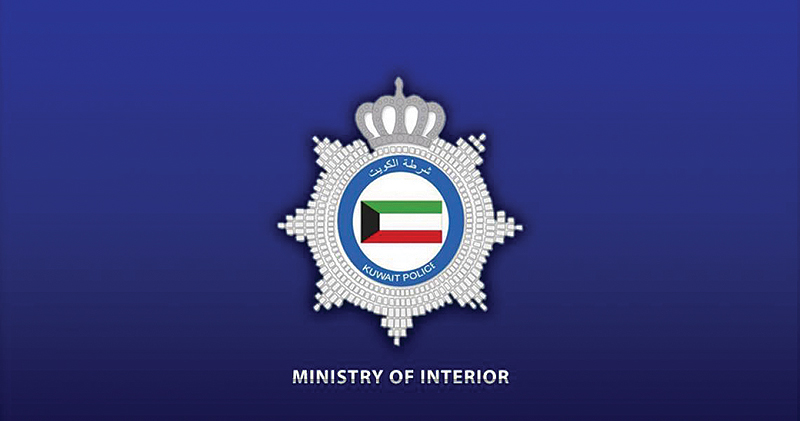KUWAIT: A high-ranking Egyptian security source said investigations and interrogations by Egyptian security authorities, which sent their results to the higher state security prosecution with regards to the "Muslim Brotherhood cell" that was deported from Kuwait recently, said the cell planned to create Brotherhood cells in Gulf countries - particularly Kuwait, Saudi Arabia and UAE - to expand the group's activities in Arab countries as well as collect donations to use in terrorist operations in Egypt.
The source, who was quoted in a report published in Al-Qabas daily yesterday, said the "Kuwait cell" worked on planting Brotherhood elements in Gulf countries to collect economic and political information and send it to members of the Brotherhood who escaped abroad and are currently in Turkey. The Egyptian security source said Egyptian investigations revealed the "Kuwait cell" collected information about various sectors in Kuwait and the country's political and economic situation, and sent it to the Brotherhood leadership abroad. They also sent it to the Brotherhood channels "Elsharq" and "Mekamellen" with the aim of harming Kuwait.
The source said authorities prepared a list of persons "Kuwait cell" sent money to, including women in Egypt, as they were receiving the money and distributing it to the families of Brotherhood elements, including those involved in the assassination of the public prosecutor.
The Egyptian source said one of the surprises revealed during investigations was that the cell sent money to a person named Mustafa S, which in turn reached armed elements in Sinai, and the aim was to support the Ansar Beit Al-Maqdis organization financially to buy weapons used against the police and army in Sinai and Arish. Money was also being sent to a woman who was delivering it to a terrorist who had connections with Ansar Beit Al-Maqdis, which confirms their support for armed terrorist organizations.
The Egyptian security source said the suspects worked in various sectors in Kuwait including as teachers, accountants and clinical pharmacist, and that a leader in the Egyptian security was in communication with Kuwait's Interior Minister Sheikh Khaled Al-Jarrah Al-Sabah and security officials in Kuwait during the interrogations with the "Kuwait cell".
Egypt's national security department handed Kuwait security officials a file that revealed the conspiracy of the Brotherhood cell against Egypt, so it was decided to hand over the cell due to the harm they caused to both countries. Some of the suspects escaped outside Egypt after the removal of former President Mohammad Morsi, particularly after the break-up of the Rabia Al-Adawiya sit-in, and a few days prior to the June 30 revolution, while others escaped after the assassination of the public prosecutor in 2015.
The source said the leader of the "Kuwait cell" is Abu Baker Atif Al-Sayyed Al-Fayoumi from Al-Behaira governorate, who was a member of the Freedom and Justice party and responsible for collecting financial donations for families of imprisoned Brotherhood members. He added that the other eight suspects come from Behaira, Sohag and South Saeed. The eight had participated in the Rabia Al-Adawiya sit-in, then escaped to various governorates after it was broken up, adding that Fayoumi and Momen Abu Al-Wafa were responsible for bringing demonstrators from various governorates to participate in Rabia before June 30 and paid them.
The source said Fayoumi participated in burning a police station in Fayoum, and contacted "Brotherhood" elements in 2013, who burned and stole from Tamiya police station in Fayoum, and the suspect was a member of the "quality committee" of the terrorist Brotherhood organizations. Fayoumi was responsible for conveying instructions of the Brotherhood leadership to the quality committees in Fayoum and participated in burning Al-Athra Church along with other Brotherhood members, and stealing the contents of the Anglican Church in Fayoum, and that other members participated in some violent actions. This in addition to burning Al-Odwa police station and attacking policeman in Minya during the storming of police stations.
The source said the "Kuwait cell" suspects participated in the Al-Fath mosque events after the break-up of the Rabia sit-in and fired at policemen. The source said all these details were given to the Kuwaiti side, with a file stating the violence the suspects participated in. The "Kuwait cell" communicated with the first accused in the case of assassinating the public prosecutor Yahya Mousa through Telegram and Signal apps while in Kuwait, and Mousa sent to the cell suspects money transfers from Turkey to Kuwait. Investigations revealed that the suspects were in communication with Engineer Mahmoud Fathi Bader, member of the "Supporting Legitimacy Alliance" that belongs to the Brotherhood, and the head of the Virtue party. - Al-Qabas








